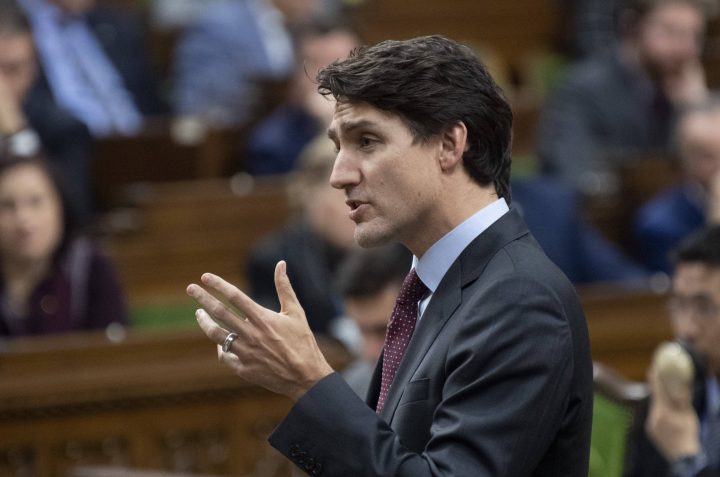OTTAWA — Prime Minister Justin Trudeau issued marching orders to his cabinet on Friday. While many of the instructions come straight from the Liberal campaign platform, there are a few things that are new, or more detailed than what’s been public before.

Here are five things of note from the ministers’ mandate letters:
Cell service
Innovation Minister Navdeep Bains’ letter asks him to use any tools at his disposal to reduce the average cell phone bill in Canada by 25 per cent.
While he has to work with telecom companies to make it happen, Bains is also being told to see that cell providers that re-sell service bought in bulk from other providers’ networks expand and increase competition. The letter also puts a deadline for the Liberals and companies to lower prices: Two years.
After that, Bains can make it easier for “virtual network” operators to qualify in Canada and expand the pricing powers of the Canadian Radio-television and Telecommunications Commission.
Separately, Labour Minister Filomena Tassi is being asked to get federally regulated workers a legal “right to disconnect” so they can turn off their work devices outside business hours without fear of reprimand.

Infrastructure ultimatum
Similarly, Infrastructure Minister Catherine McKenna’s mandate letter sets a time limit for provinces and territories to hand over lists of construction projects for federal officials to consider funding.
The letter says the lists have to be provided “within the next two years” and that any federal money “not designated for specific approved projects by the end of 2021” will go into the federal gas-tax fund, which goes straight to municipalities — and does an end-run around provincial governments.

Change the stress test
Finance Minister Bill Morneau’s mandate letter includes an order that echoes a Conservative campaign promise — changing the mortgage stress test that determines whether a buyer could afford payments if faced with higher interest rates.
The Tories promised to ease the test for first-time homebuyers and remove the test from mortgage renewals.
Some groups and economists call for an easing of the test, while the head of the Canada Mortgage and Housing Corp. says the test has lowered housing prices and ensures Canadians don’t borrow more than they can afford.
Now, Trudeau is telling his finance minister to “review and consider recommendations from financial agencies” about making the stress test “more dynamic.”
China
Agriculture Minister Marie-Claude Bibeau’s mandate letter requires her to “draw on lessons from recent trade disputes” to improve the federal government’s ability to “respond to export protections against Canadian agriculture, such as were recently faced by canola, beef and pork producers.”
- Budget 2024 failed to spark ‘political reboot’ for Liberals, polling suggests
- Train goes up in flames while rolling through London, Ont. Here’s what we know
- Peel police chief met Sri Lankan officer a court says ‘participated’ in torture
- Wrong remains sent to ‘exhausted’ Canadian family after death on Cuba vacation
The idea is to “provide faster short-term support for industry when required,” the letter says. China’s blocking of those products this year as relations soured between the two countries has walloped Canadian farmers and producers.
At the same time, International Trade Minister Mary Ng is being told to increase trade in places even where no agreement exists, “with a particular focus on the Asia-Pacific region,” which includes China. Foreign Affairs Minister Francois-Philippe Champagne’s mandate letter, meanwhile, has no direct mention of China.
Safety abroad, and killer robots
What Champagne’s mandate does have is a request to “ban the development and use of fully autonomous weapons systems” — also called killer robots. The idea of artificial intelligence-driven machines that can target and kill without human oversight has raised alarms globally, and on Parliament Hill.
Champagne’s letter doesn’t say how he is to terminate the creation of Terminator-like systems, just that he needs to work with other countries to do so. In the same vein, Public Safety Minister Bill Blair is being told to help the RCMP hire and train 100 new officers “specialized in narcotics trafficking,” among other global security priorities, so they can better help Canadian embassies assist abroad.



Comments